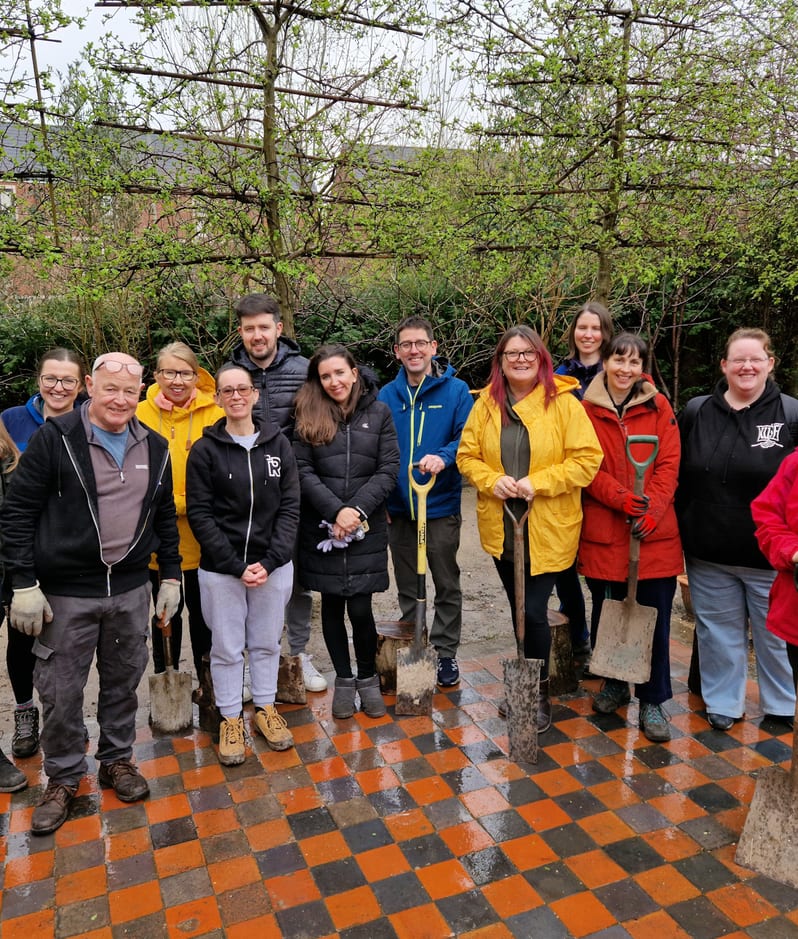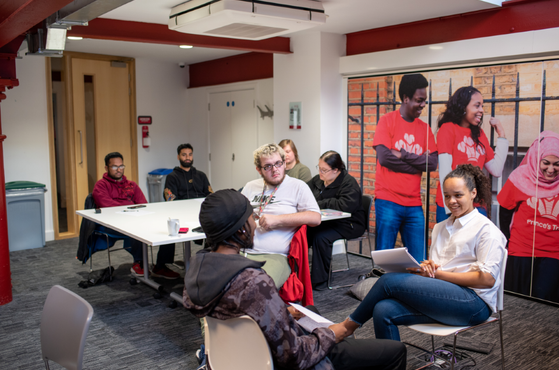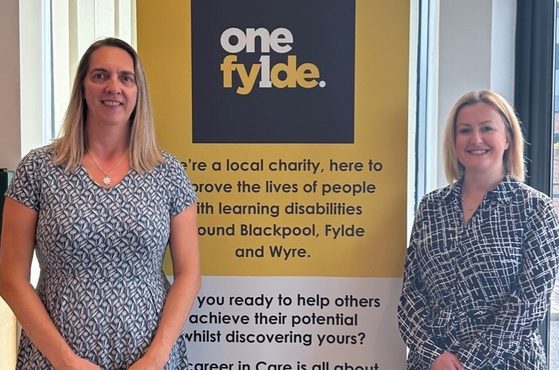Data (Use and Access) Act 2025 — how opt-in rules are changing for charities

We explore how charities will need to manage their marketing activities and supporter consent once the secondary legislation takes effect.
Read more
We make the difference. Talk to us: 0333 004 4488 | hello@brabners.com
We advise on the legal and regulatory requirements of charitable giving and gifting, such as donating cash, volunteering and how to establish a charitable foundation.
Any approach to corporate giving requires trust in the charity that you’re working with. Reputation is key and there are complex legal and regulatory requirements to consider. Navigating these — and ensuring ongoing compliance — isn’t always easy.
As a purpose-led independent law firm and certified B Corp with our own independent charity — The Brabners Foundation — we’re committed to doing good, giving back and improving our local communities. This makes us well-placed to advise others on their own initiatives and ensure compliance with relevant legislation, including The Charities Act, The Charitable Institutions Regulations and The Gambling Act.
Our team works with many retailers (as well as their charitable trusts and corporate foundations) to help create opportunities to enhance their impact, including through cash, in-kind donations, volunteering and more. Recognised by The Legal 500 as the leading team of charity law experts in the North West, we have a national reputation for providing accurate, pragmatic and commercially focused advice.
Get in touch with us via email at hello@brabners.com, call 0333 004 4488 or complete our contact form.

There are various types of corporate giving available to businesses, including:

According to the Association of Charitable Foundations (ACF), “foundations continue to face demand from charities to fill the gaps left by collapsed local authority funding”. Combined with a 25% increase in giving from corporate foundations, it’s no wonder that philanthropy through trusts and grant making (via foundations and Donor Advised Funds) now exceeds Government grant making to the voluntary and community sector.
When setting up your own charitable foundation, there are various legal structures to consider. We can guide you through the options and tailor these to align with your business’s ambitions, resources and operational scale. This may include providing advice around how to fund such a vehicle (which can be done through endowments (initial capital provided by the company to generate income for the foundation), regular donations (ongoing financial support from the company, which can be tied to profit or other metrics) or in-kind support (such as office space, staff secondments and IT support).
Complying with the basic legal requirements that come with maintaining your own corporate foundation requires sufficient independence of the founding company, ensuring that the foundation continues to be established for its charitable aims for the public benefit and ongoing compliance with trustee duties and responsibilities, including managing conflicts of interest and acting in the best interests of the charity.
Any failure to comply with such duties and responsibilities can bring about serious reputational damage and regulatory intervention, including having trustees disqualified by the Charity Commission (find out more about charity trustee disqualification orders).
Our charity law experts will help your organisation to define the foundation’s purpose, develop a clear proposition and arrangement between the business and its foundation and ensure that there’s a clear governance structure as well as policies to identify/develop the most strategic way to achieve your aims within the complex legislation. We have the insights, tools and expertise that your business needs to set up and manage a corporate foundation effectively — ensuring that your charity policies, codes of conduct and key trustee duties and responsibilities are properly developed and understood for application in practice.

A commercial participator arrangement is where a business works in collaboration with a charity to promote its goods or services in exchange for contributions. One example of this is Innocent’s collaboration with Age UK, which sees the smoothie drinks company donate 25p to Age UK for every 'behatted bottle' it sells. In this instance, Innocent acts as the ‘commercial participator’ on behalf of the charity Age UK.
Alongside having a written agreement in place and monitoring compliance, there are other aspects of commercial participation legislation that must be considered. These serve to protect the reputation of the business and charity concerned. A prime example of the risks in failing to properly manage that relationship can be demonstrated by the Captain Tom Foundation and its lack of agreement with Club Nook Limited for the use of its intellectual property rights and identity, which led to significant regulatory action from the Charity Commission and Fundraising Regulator.

Many businesses seek to fundraise for charity by running lotteries. The added incentive of a prize helps to engage those who may otherwise not donate.
However, lotteries are a form of gambling, so how they’re set up and administered is subject to gambling legislation as well as the Code of Fundraising Practice to respect donors.
We can provide the required legal advice to address professional fundraising requirements, deal with the Gambling Act licences and ensure that the Code of Fundraising Practice rules are complied with. This in turn serves to ensure that users are adequately informed and safeguarded and that vulnerable people aren’t placed under undue pressure.

Our company charitable giving team is led by talented Associate Imogen Trafford and Head of Retail Helena Davies.
As a member of our charities, not-for-profits and social enterprises team, Imogen works closely with corporate foundations on a wide range of charity law matters, offering guidance on their governance and structure, advising on their relationship with associated businesses and helping them to navigate fundraising rules and regulations. Recognised as a 'Leading Associate' by The Legal 500, Imogen combines technical knowledge with practical insight to help organisations achieve their charitable goals.
With a genuine passion for sustainability and community impact, Helena leads our retail sector team. She’s vastly experienced in helping retailers to address a wide range of ESG-related challenges including setting up corporate charity foundations.
Our team also includes highly-regarded charity lawyer Graeme Hughes as well as Ciara Lawlor, who previously spent two years working for the Charity Commission.
“Brabners has real expertise in charities and dealing with the Charity Commission. This is quite rare to find. Establishing a charitable publisher is hard, because there isn’t a clear line between what is charitable and what isn’t. Brabners did this successfully. Its fees are affordable by the sector.”
Client feedback, The Legal 500
“Graeme Hughes competently advises on charity law, governance and regulatory issues, as well as overseeing matters requiring insights from his corporate, property and employment colleagues.”
The Legal 500
“We have valued the long-term relationship with [Brabners]… [its] understanding of our company structure — and the market, regulation and jurisdiction in which we operate — supports the delivery of exceptional advice. Graeme Hughes and Imogen Trafford provide outstanding support around charity law.”
Client feedback, Legal 500
“[Brabners] is interested in knowing your business and understanding the culture and nature of what you do. This leads to bespoke solutions… not simply ‘off the shelf’ advice that you may get from any firm.”
Client feedback, The Legal 500
“The ‘outstanding’ Imogen Trafford is highly active on mandates concerning the registering, merging and dissolving of charities.”
The Legal 500

Our independence allows us to be objective, principled and provide a service with heart and personality.
We’re on a mission to make the difference for our clients, people and communities. Proudly anchored in the North since 1815, we serve all of England and Wales.

Northern Ambition
The collaborative network for purpose-led businesses. We’re building a more sustainable and innovative tomorrow.

Sustainable Business
In 2022, we proudly became the UK’s largest law firm (and the first outside London) to become B Corp certified.

Community Impact
We channel the energy of our public-spirited people and clients towards improving our local communities.

We explore how charities will need to manage their marketing activities and supporter consent once the secondary legislation takes effect.
Read more

What happened in Gary Mond’s case? We explore why this offers more clarity to charity trustees around social media activity.
Read more

Issued by the Charity Commission, Disqualification Orders prevent individuals from acting as charity trustees or holding senior management positions in a charity, whether paid or unpaid.
Read more

There are key charity law requirements and property law considerations to be aware of before a charity purchases land. Our lawyers explore.
Read more

A revised version of the Charity Governance Code is scheduled for publication in early 2025. The fundamental principles are expected to remain consistent with the existing Code.
Read more

From building a family to creating Wills and trusts, buying or selling property, land or a business, planning for your succession or dealing with a crisis, it helps to have ready access to a multidisciplinary legal team that can support you with whatever life throws your way.
Read more

Our charity law team explains the key legal issues that charities must consider when devising a social media policy.
Read more

The Charity Commission has issued an Official Warning to Calderdale Metropolitan Borough Council for failing to manage 13 charities properly.
Read more

Our charity lawyers explore the Charity Commission's inquiry into EVF following the collapse of FTX Trading and share three key governance lessons for charities.
Read more

Our charities, not-for-profit and social enterprises team examines the consequences of failing to adhere to the Fundraising Code and what happened specifically in the case of Penny Appeal.
Read more

Our charity Swish event shone a spotlight on sustainable fashion brands and the reality of ESG in retail.
Read more

The Prince’s Trust has transformed the lives of young people across the UK for nearly 50 years.
Read more

Associate Amanda Long has become a trustee of One Fylde, a charity based on Lancashire’s Fylde Coast.
Read more

We explore how The Charities Act 2022 will affect how charities sell, lease or otherwise dispose of charity land.
Read more
Loading form...